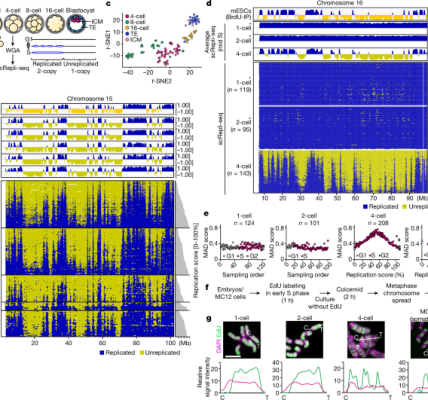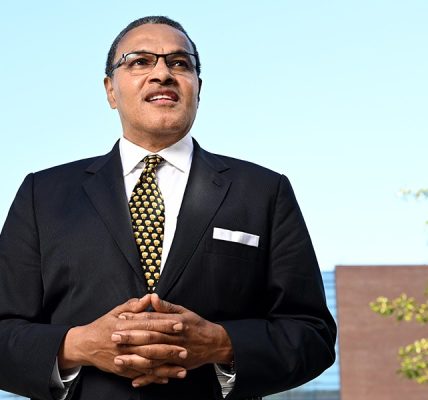Security pact and economic assurances for a Palestinian state in the region of Lebanon, as announced by the United States in a joint statement on Tuesday
Scott Neuman reported from Tel Aviv, Israel. Lauren Frayer and Daniel Estrin both contributed from Tel Aviv.
He also said the United States remains ready to conclude an agreement with Saudi Arabia that would normalize relations with Israel and include a security pact and economic assurances, with a pathway for a Palestinian state.
Amos Harel, a former senior fellow at the Brookings Institution who lives in Washington, DC, and a journalist at Israel’s Haaretz newspaper said it will be hard for Netanyahu to sell this to the north.
“The Security Cabinet approved the United States’ proposal for a ceasefire agreement in Lebanon this evening, with a majority of 10 ministers in favor and one opposed,” the office of Israeli Prime Minister Benjamin Netanyahu said in a statement late Tuesday.
The announcement came during some of the heaviest fighting between Israel and Hezbollah in months, with Israeli airstrikes hitting Beirut and Israeli troops pushing deeper into southern Lebanon on Tuesday, as Hezbollah fired rockets into northern Israel.
According to the UN, the conflict has caused more than one million people to leave their homes. About 60,000 people were evacuated from northern Israel to escape Hezbollah’s rockets.
In a joint statement, President Biden and French President Emmanuel Macron said the deal “will cease the fighting in Lebanon, and secure Israel from the threat of Hezbollah and other terrorist organizations operating from Lebanon.” They said it “will create the conditions to restore lasting calm and allow residents in both countries to return safely to their homes” along the border.
Netanyahu said in his address that he and the United States are maintaining full military freedom of action. “If Hezbollah attempts to back out, we will strike.”
“This understanding, which outlined a roadmap for the cessation of hostilities, was reviewed by me this evening, and I consider it a key step towards establishing calm and stability in Lebanon and enabling the return of displaced people to their homes and towns,” Mikati said. “It also contributes to promoting regional stability.”
The deal demands that the government of Lebanon deploy thousands of troops to the south to ensure security in the area. The U.S.-led international panel will monitor for violations of the agreement.
Many Lebanese already began trying to return to their southern villages, despite Israeli military warnings not to do so yet, while Israeli troops are still deployed.
“This agreement is not good because it does not require the Lebanese army and government to disarm Hezbollah,” Avigdor Lieberman, an opponent of Netanyahu who is a lawmaker in Israeli parliament, said Monday before the vote.
The War Between Israel and Hezbollah and the Return of the displaced to their Homes: Israel’s Support and Security in the West Bank
“Urgent work must now begin to ensure this peace is sustained. Children and families must be able to return to their communities safely, especially those displaced in shelters and host communities,” the agency said.
In a statement on the ceasefire, UNICEF said it hopes the agreement “will bring an end to the war which has killed more than 240 children, injured around 1,400, and upended the lives of countless others.”
David Wood, a senior analyst on Lebanon at Crisis Group, stated that many of the displaced may not be able to return to their homes for months because Israel has destroyed entire villages near the Blue Line. The Blue Line is the demarcation in southern Lebanon from where Israel withdrew in 2000.
Hezbollah played a crucial role in support of the Gaza Strip and the Palestinian resistance, as well as the great sacrifice, according to Hamas.
And in Gaza, there are worries as well. Wala Hanuna worried that the Israeli military would now be free to cause more destruction since they had been out for nearly fourteen months. “We read the news that the Israeli army fighting in Lebanon will go now to Gaza,” she said. The war will last for another year, without anyone thinking how we will get out of it.
Still, some Israelis remain skeptical. “This deal, we still know nothing about it,” Avraham Moreno, displaced from Shlomi, a village on the border with Lebanon, tells NPR. Even though we really desire to return home, we still have very mixed feelings.
Saudi Arabia said it hoped the ceasefire “will lead to the implementation of [U.N.] Security Council Resolution 1701,” referring to a previous agreement renewing UNIFIL’s mandate at the end of a 2006 war between Israel and Hezbollah. Saudi Arabia called for the preservation of Lebanon’s sovereignty, security and stability and the return of the displaced to their homes.
Egypt’s Foreign Ministry said in a statement that Cairo hopes the ceasefire “will contribute to the beginning of the de-escalation phase in the region.” It called for Israel to allow full access to humanitarian aid, without obstacles, and to stop the unjust violations in the West Bank.
If Israel does not get satisfaction, they will take action on their own and at the smallest infraction, they will go through the motions.
“This is all going to be about the enforcement,” says Shalom Lipner, a Jerusalem-based Middle East expert at the Atlantic Council. “They’re telegraphing that there will not be any exceptions [as] in the past.”
The agreement states that Lebanon’s government ought to prevent Hezbollah or any other armed group from attacking Israel. It further requires Lebanon’s military and security forces be the only armed group allowed to operate in southern Lebanon, and that Lebanese authorities prevent the reestablishment and rearming of any non-state armed group in the country.
“There is a good deal here that had to come because of the international pressure. He said that they had somewhere to go back to. Alluding to the devastation that Israel has inflicted on southern Lebanon, he added: “The Lebanese have nowhere to return to.”
An Israeli who was exiled from Kiryat Shmona, a town that is less than a mile from the border with Lebanon, told NPR that Hezbollah had been taught a lesson it never suffered in its entire lifetime.
For now, Israel is discouraging its residents from returning to their abandoned homes in the border area. The minister said there will be a 30- to 60-day period of renovation for damaged buildings and institutions before the Israelis return.
On Wednesday she was driving to reach the home she was forced to abandon earlier. We are aware that this is the end of the war. She told NPR she knew it was going to be okay.

